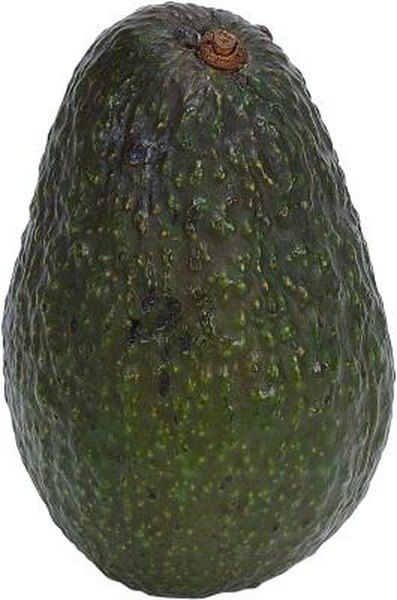Introduction: Avocado, a versatile and creamy fruit native to Central and South America, has taken the world by storm in recent years. Its popularity has surged due to its rich flavor, numerous health benefits, and adaptability in various cuisines. In this article, we will delve into the many facets of avocados, from their nutritional value and culinary applications to their environmental impact and sustainable practices.
- The Nutritional Powerhouse: Avocados are not only delicious but also packed with essential nutrients. Discuss the various vitamins, minerals, and healthy fats found in avocados, highlighting their contributions to heart health, brain function, and skin health.
- Avocado in the Kitchen: Explore the diverse culinary uses of avocados, from the classic guacamole to modern creations like avocado toast and smoothie bowls. Provide easy-to-follow recipes that showcase the fruit’s versatility in both savory and sweet dishes.
- Health Benefits and Myths: Separate fact from fiction by addressing common misconceptions about avocados, such as concerns about their fat content. Explain how the monounsaturated fats in avocados can contribute to a healthy diet and weight management.
- Avocado Farming and Sustainability: Delve into the environmental impact of avocado production, discussing topics like water usage, deforestation, and transportation. Highlight the efforts of sustainable avocado farming practices, including organic farming, agroforestry, and local sourcing.
- Global Avocado Trade: Investigate the economic significance of avocados for exporting countries, focusing on major producers like Mexico, Peru, and Kenya. Discuss how the avocado trade can impact local economies and labor conditions.
- Avocado’s Influence on Food Culture: Explore how avocados have influenced food trends and cultural shifts, particularly in Western countries. Discuss their popularity on social media platforms and their role in shaping modern dining preferences.
- Challenges and Future Outlook: Address the potential challenges that the avocado industry might face, such as climate change’s impact on avocado cultivation regions. Discuss ongoing research and innovations that could shape the future of avocado production and consumption.
- Incorporating Avocado Into a Balanced Diet: Provide practical tips on how readers can integrate avocados into their regular diet to reap the health benefits without overindulging. Suggest portion sizes and pairing options with other nutrient-rich foods.
- Avocado Varieties and Flavors: Introduce readers to different avocado varieties, discussing variations in taste, texture, and appearance. This section can also include information about seasonal availability.
- Avocado-Related Products: Explore the market for avocado-based products beyond fresh fruit, such as avocado oil, skincare products, and dietary supplements. Discuss their potential benefits and limitations.

avocado
Avocado is not only delicious but also incredibly nutritious. It is packed with a variety of vitamins, minerals, healthy fats, and other beneficial compounds that offer a range of health benefits. Here are some key health benefits of avocado:
- Rich in Healthy Fats: Avocado is notably high in monounsaturated fats, particularly oleic acid. These fats are heart-healthy and have been associated with reducing bad cholesterol (LDL) levels while increasing good cholesterol (HDL) levels. This can contribute to a reduced risk of heart disease.
- High in Nutrients: Avocado is a great source of various vitamins and minerals, including vitamin K, vitamin E, vitamin C, and several B vitamins (especially folate). It also contains potassium, which is essential for maintaining healthy blood pressure levels and proper muscle function.
- Dietary Fiber: Avocado is a good source of dietary fiber, which is important for digestion, gut health, and maintaining a feeling of fullness. The fiber content can aid in preventing constipation and promoting regular bowel movements.
- Antioxidant Properties: Avocado contains antioxidants such as lutein and zeaxanthin, which are beneficial for eye health. These antioxidants help protect the eyes from harmful UV light and may reduce the risk of age-related macular degeneration.
- Inflammation Reduction: The monounsaturated fats in avocados, along with compounds like phytosterols and polyhydroxylated fatty alcohols, have been shown to have anti-inflammatory effects. A diet rich in anti-inflammatory foods may contribute to overall well-being and reduced risk of chronic diseases.
- Blood Sugar Regulation: The fiber and healthy fats in avocados can help stabilize blood sugar levels and improve insulin sensitivity, making them a good choice for individuals with type 2 diabetes or those aiming to manage their blood sugar levels.
- Weight Management: Despite being calorie-dense, studies have suggested that including avocados in meals can help control appetite and reduce the desire to overeat. The combination of healthy fats and fiber provides a satisfying feeling of fullness.
- Skin Health: The monounsaturated fats in avocados, along with vitamin E and other antioxidants, can contribute to healthy skin. These nutrients help maintain skin elasticity, hydration, and overall appearance.
- Brain Health: Avocado’s high content of monounsaturated fats supports healthy brain function and may contribute to improved cognitive abilities. Additionally, the folate in avocados is important for brain development and cognitive function.
- Heart Health: Avocado’s combination of healthy fats, potassium, and antioxidants may contribute to improved cardiovascular health by reducing blood pressure, lowering cholesterol levels, and supporting overall heart function.
- Digestive Health: The fiber in avocados aids in digestion and can promote a healthy gut microbiome, which is crucial for nutrient absorption, immune function, and various aspects of health.
It’s important to note that while avocados offer numerous health benefits, they are also calorie-dense due to their fat content. Incorporating them into a balanced diet and being mindful of portion sizes can help you reap their health advantages without overconsuming calories

Buy online Avocado
Culinary Uses of Avocado
sustainability challenges all contribute to its unique status in the modern food landscape. As we continue to enjoy avocados, it’s essential to remain mindful of the ecological and social impacts of their production, ensuring that our consumption aligns with a more sustainable future.
Avocado’s creamy texture and mild, nutty flavor make it a versatile ingredient that can be used in a wide range of culinary creations. Here are some popular and creative ways to use avocados in your cooking:
- Guacamole: The classic dip made with mashed avocados, lime juice, onions, tomatoes, and cilantro. It’s a perfect party appetizer or a topping for tacos, nachos, and burritos.
- Avocado Toast: Spread mashed avocado on toasted bread and customize it with toppings like poached eggs, radishes, feta cheese, red pepper flakes, or smoked salmon.
- Smoothies: Add half an avocado to your favorite smoothie recipe for a creamy texture and a boost of healthy fats. Avocado pairs well with fruits like bananas, berries, and mangoes.
- Salads: Slice or cube avocados to enhance salads with a creamy element. They work well in both green salads and hearty grain-based salads.
- Sushi Rolls: Avocado is a staple ingredient in many sushi rolls, adding creaminess and depth of flavor to dishes like California rolls.
- Sauces and Dressings: Blend avocados with herbs, garlic, lemon juice, and olive oil to create creamy sauces and dressings for pasta, salads, or grilled vegetables.
- Stuffed Avocado: Scoop out the flesh of a halved avocado and stuff it with fillings like quinoa, salsa, black beans, or grilled shrimp.
- Avocado Pasta: Create a creamy pasta sauce by blending avocados with basil, garlic, pine nuts, and Parmesan cheese. Toss the sauce with cooked pasta for a unique twist on traditional pasta dishes.
- Avocado Fries: Slice avocados into wedges, coat them with breadcrumbs or a light batter, and bake or fry them for a delicious and healthier alternative to traditional fries.
- Avocado Devilled Eggs: Mix mashed avocado with egg yolks, mustard, and spices to create a creamy and nutritious filling for deviled eggs.
- Avocado Salsa: Combine diced avocado with diced tomatoes, red onions, cilantro, lime juice, and a touch of salt to create a refreshing salsa to accompany grilled meats or tortilla chips.
- Avocado Ice Cream: Blend avocados with coconut milk and sweetener to make a creamy, dairy-free ice cream base that you can customize with flavors like chocolate or mint.
- Avocado Burgers: Use avocado slices as a burger topping to add creaminess and a fresh flavor element. You can also mash avocado and spread it on burger buns.
- Avocado Wraps: Use large avocado slices as a substitute for tortillas or bread to wrap fillings like deli meats, cheese, and veggies.
- Avocado Mousse: Create a healthy dessert by blending avocados with cocoa powder, sweetener, and vanilla extract to make a rich and creamy chocolate mousse.

Avocado
Sustainability
Remember, the possibilities are endless when it comes to using avocados in the kitchen. Their creamy texture and mild flavor make them a versatile ingredient that can be incorporated into both savory and sweet dishes, adding a nutritious and delicious twist to your culinary creations.
The sustainability of avocado production has become a topic of concern due to the increasing global demand for avocados. While avocados offer numerous health benefits and economic opportunities for producing countries, their cultivation and trade can also have environmental and social impacts. Here’s an overview of the sustainability issues associated with avocado production and some measures being taken to address them:
- Water Usage: Avocado trees require a significant amount of water to grow, and in some regions, this can lead to water scarcity issues. Water-intensive farming practices can strain local water resources and impact ecosystems. Some avocado-producing areas, like parts of Mexico and Chile, have faced water-related challenges.
- Deforestation and Habitat Loss: In some cases, the expansion of avocado cultivation has led to deforestation, particularly in ecologically sensitive regions. Clearing land for avocado orchards can result in habitat loss for native species, disrupt local ecosystems, and contribute to biodiversity loss.
- Pesticide Use and Environmental Impact: Conventional avocado farming can involve the use of pesticides and fertilizers, which can have negative effects on soil health, water quality, and local biodiversity. Improper use of these chemicals can also harm farmworkers’ health and nearby communities.
- Transportation and Carbon Footprint: Avocado production is often concentrated in specific regions, leading to long transportation distances for export to consumer markets. This can contribute to a higher carbon footprint due to emissions from transportation, especially when avocados are shipped by air.
- Social Impact: Labour conditions in avocado-producing regions can vary. Some concerns include fair wages, worker rights, and safe working conditions. Rapid expansion of avocado farming can sometimes lead to disputes over land and resources.
- Sustainable Practices and Certification: Many avocado producers are adopting sustainable farming practices to mitigate environmental and social impacts. This includes practices like agroforestry, which integrates avocado trees with other crops, and organic farming methods that minimize chemical use.
- Certification Programs: Certification schemes, such as Fair Trade and organic certifications, help promote ethical and sustainable avocado production. These programs often ensure fair wages for workers, environmental stewardship, and responsible land use.
- Water Management Strategies: To address water scarcity concerns, some avocado producers are implementing water-efficient irrigation methods and technologies. Precision irrigation systems can optimize water usage and reduce the overall water footprint of avocado cultivation.
- Reforestation and Conservation Efforts: Initiatives aimed at reforestation and habitat restoration can help offset the environmental impact of avocado farming. Planting native vegetation and preserving natural habitats can support biodiversity and ecosystem health.
- Consumer Awareness and Choices: Consumers can also play a role in promoting sustainability by making informed choices. Supporting certified organic, Fair Trade, or sustainably sourced avocados encourages responsible production practices.
In conclusion, while avocados offer nutritional and economic benefits, their sustainability is a complex issue that involves careful consideration of environmental, social, and economic factors. Efforts to make avocado production more sustainable include adopting responsible farming practices, supporting certification programs, and raising awareness among consumers about the environmental and social implications of their choices.

















